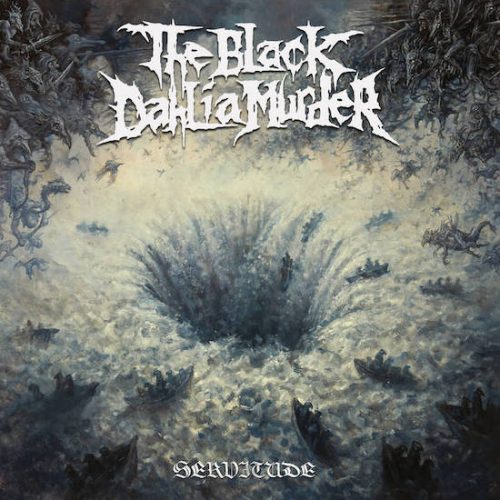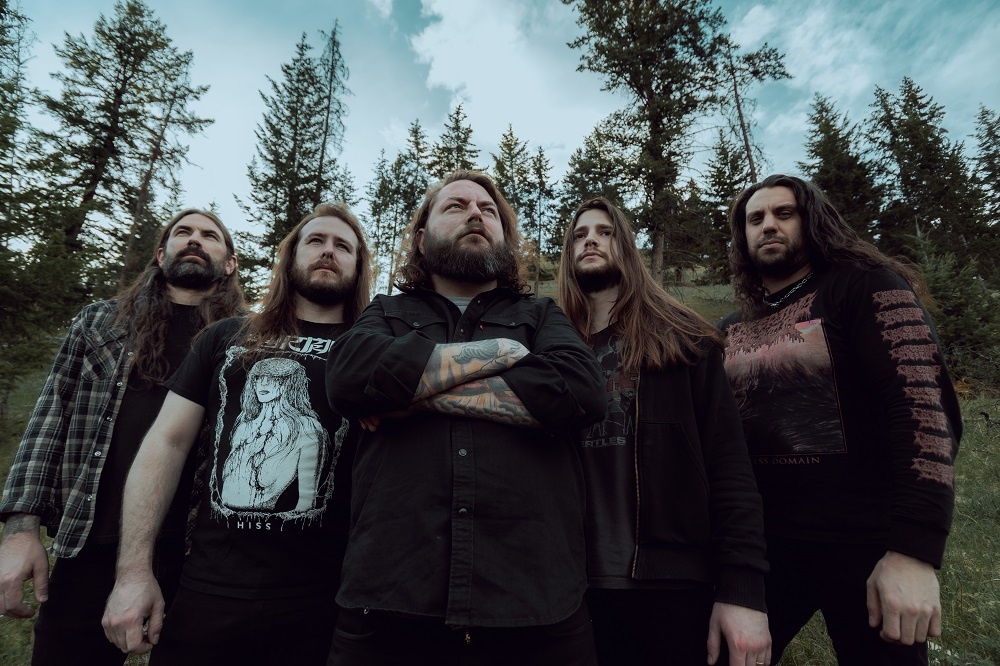
(Today our man Andy Synn steps up to tackle one of the most difficult reviews he’s ever written)
How exactly, let me ask you, does one even begin to talk about – let alone judge – an album like this?
Let me be clear, the untimely demise of the band’s infamous (and seemingly irreplaceable) frontman Trevor Strnad hit a lot of us here at NCS very hard – hell, I was the one who volunteered to pen a few words in tribute after his passing – but it obviously hit his bandmates harder than almost anyone, and I don’t think anyone would have blamed them if they’d chosen to hang up their spurs in the aftermath.
But, as it turns out, giving up wasn’t in the cards for these Detroit death-dealers, who are set to solidify their return with the release of their tenth album – the first one to feature long-time guitarist (and last-remaining original member) Brian Eschbach taking over as the group’s vocalist, as well as the recording debut of the newly-formed guitar-duo of Brandon Ellis and the returning Ryan Knight – in just over two weeks from now.
With all that in mind then, perhaps the best thing I can do with this review is simply set your expectations appropriately, as while many (if not most) of us may have been hoping that the band’s big comeback would be an unqualified success and an unparalleled triumph over tragedy… the truth is that Servitude is not that.
Or maybe it is. Maybe I’m looking at it wrong. Maybe its very existence – it’s still a good album, just not a great one, after all – is enough of a triumph on its own… especially considering that it almost didn’t happen at all!

Of course, even if that is the angle we’re taking, Servitude still deserves to be looked at with an appropriately critical eye (or ear) – much as we would have done if Trevor were still here – and we can’t do that without first discussing the titanic, ten-tonne elephant in the room that is Eschbach’s performance behind the mic and how it stacks up (or doesn’t) to that of his dearly-departed predecessor.
But while Servitude may have its flaws none of them can really be attributed to Eschbach himself, as although he may not have quite the same range as his illustrious predecessor, there’s no doubt, after hearing him spit and snarl his way through just under thirty-three minutes of the band’s signature brand of stunningly technical, shamelessly melodramatic Melodic Death Metal, that he was the right – and only – choice for the job.
Similarly, I should clarify that Servitude is in no way a bad album – hell, The Black Dahlia Murder don’t really do bad albums (ok, maybe one, but I’m keeping which one to myself) – it’s just that a number of the ten tracks which make up the group’s tenth record (nine if you discount 29 second acoustic interlude “An Intermission”) don’t quite do enough to stand out and separate themselves from the pack (with the opening pairing of “Evening Ephemeral” and “Panic Hysteria” in particular rushing by in something of a blur that simultaneously feels a little too familiar while also lacking the merciless memorability of the band’s best work).
That being said, it wouldn’t be a Black Dahlia album without at least a handful of bombastic, blood-drenched highlights, and luckily the likes of high-velocity, blast-driven (and wisely-chosen) first single “Aftermath”, the devilishly technical and aggressively hooky title-track, and the insidiously melodic “Mammoth’s Hand” are all pretty much worth the price of admission (and I wouldn’t be surprised to see “Transcosmic Blueprint” – which feels almost like an unheard cut from the Deflorate days – become a live-set staple either).
Hell, even some of the slightly less distinctive tracks like the Ritual-flavoured “Cursed Creator”, the surprisingly (or possibly unsurprisingly, given who the band’s current guitar duo are) Arsis-esque “Asserting Dominion”, and riff-tastic closer “Utopia Black” are still more than worth your time (even if the latter doesn’t quite hit the same heights as the likes of “Map of Scars”, “The Lonely Deceased”, and the evergreen “I Will Return”), if only so you can marvel at the sheer amount of talent on display (with drummer Alan Cassidy being worthy of particular praise for pushing himself even harder than ever).
In the end, while I may have some reservations about Servitude – although I hope most of you understand that just because I’m saying the album isn’t perfect that doesn’t mean I don’t like it, or that it’s unworthy of its place in the band’s back-catalogue – its very existence is something that deserves to be celebrated, and I’m happy to be able to say, with a few caveats, that the group’s legacy is still in safe hands.
RIP Trevor, the boys have done you proud.
